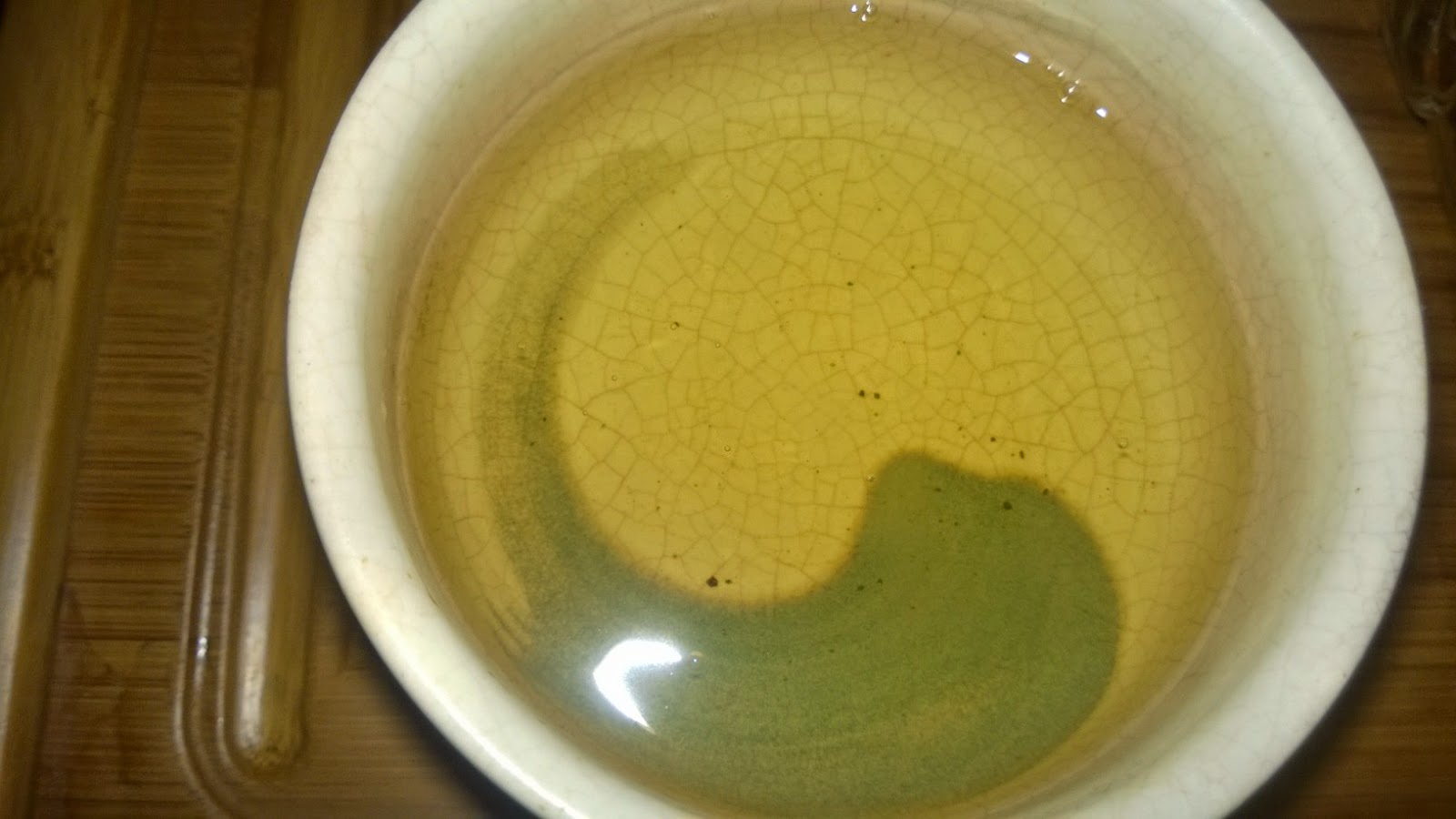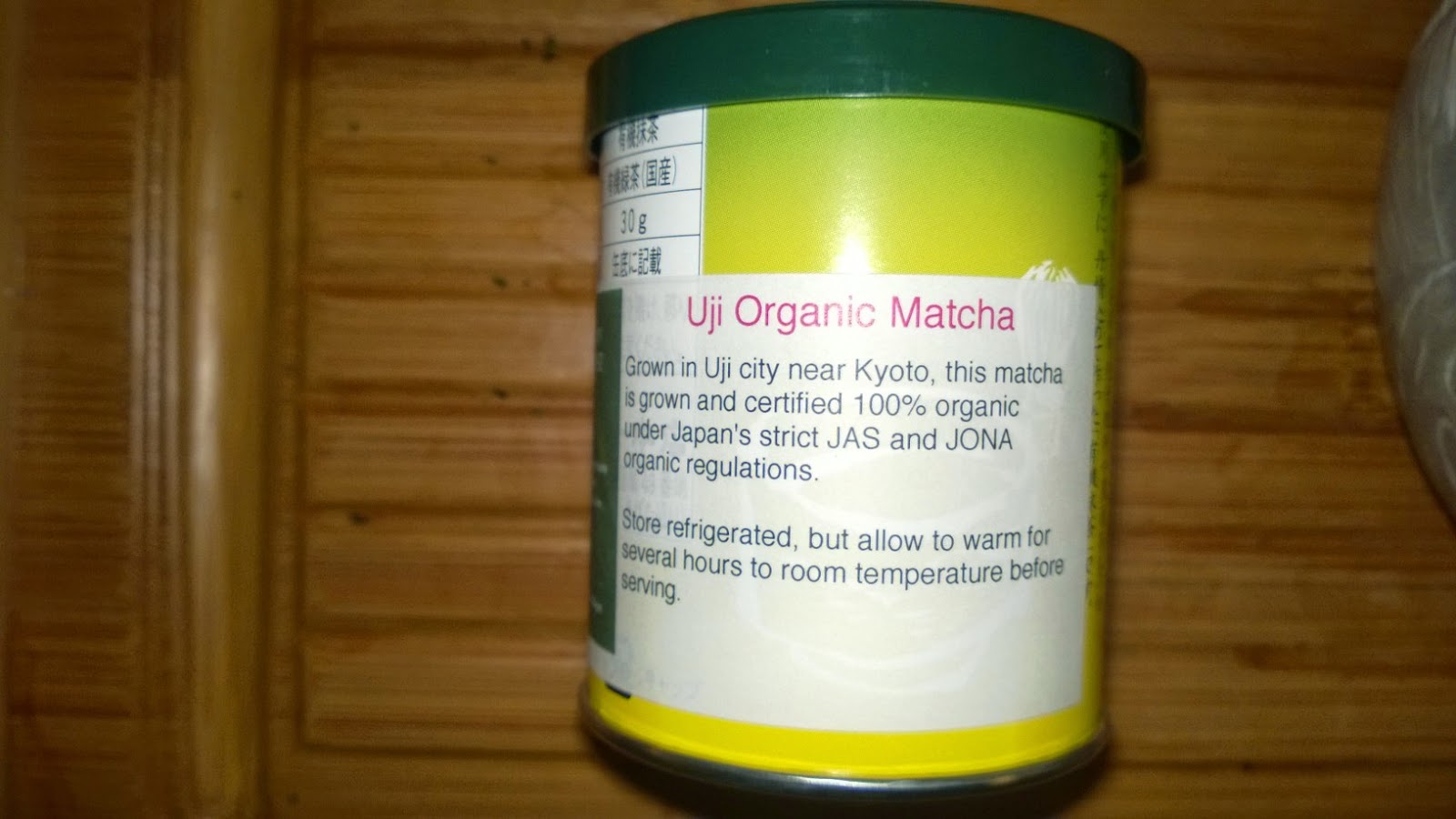Pekoe Sip House - Organic Pekoe Dragonwell Green Tea
6:52 AM
Dragonwell
,
green tea
,
Long Jing
,
Organic Pekoe Dragonwell Green Tea
,
Pekoe Sip House
0 Comments
6:52 AM Dragonwell , green tea , Long Jing , Organic Pekoe Dragonwell Green Tea , Pekoe Sip House 0 Comments
What-Cha's Discover Korea 2013 Green Tea & Bonus Tea Flowers
Korea Jukro Jungjak 2013 Sparrow's Tongue 'Jakseol' Green Tea
Origin: Jukro Tea Company, Hwagae Valley, Hadong, Korea
Harvest: Jungjak (Third flush)
Temperature: 160oF (increasing five degrees each subsequent infusion)
Brewing Time: One Minute (plus an additional minute for each subsequent infusion)
Aroma: Grassy, Floral and Cooked Spinach
Flavor: Corn, Grassy, Buttery and Ocean Air
Tasting Notes: You can tell it was made with love and handpicked, definitely the star of the three. This tastes like a yasaeng-cha (wild tea). It had a nice mouthfeel, it doesn’t feel that different from the other two teas, but there is certainly something there that I can’t quite put my finger on. It reminds me a little of a Japanese green, but it still is distinctly Korean. This is the most complex of the three and is definitely worth the price. At the time of writing this it was being sold at $20.80 for 50g and is easily worth that price. While it is the tea I have the least to say, it is my favorite of the three. It is deceptively simple, I wasn’t that impressed with my first infusion, but in my second I started to recognize the various flavors in this tea.
Korea Dong Cheon Sejak 2013 Sparrow's Tongue 'Jakseol' Green Tea
Origin: Dong Cheon, Hwagae Valley, Hadong, Korea
Harvest: Sejak (Second flush)
Temperature: 140oF (increasing five degrees each subsequent infusion)
Brewing Time: One Minute (plus an additional minute for each subsequent infusion)
Aroma: Roasted Corn, Grassy and slight wildflower
Flavor: Corn, Grassy, Lightly Roasted and Woodsy
Korea Dong Cheon Daejak 2013 Sparrow's Tongue 'Jakseol' Green Tea
Origin: Dong Cheon, Hwagae Valley, Hadong, Korea
Harvest: Daejak (Fourth flush)
Temperature: 158oF (increasing five degrees each subsequent infusion)
Brewing Time: One Minute (plus an additional minute for each subsequent infusion)
Aroma: Corn and Grassy
Flavor: Corn and Grassy
Tasting Notes: While it is the simplest of the three, it stays very nice and stays relatively the same in subsequent infusions. I got thirteen infusions out of this and was quite satisfied with it before it started to lose flavor. I stopped at the fifteenth infusion, it might have had more to give, but I had stuff to do and I can’t spend the whole day drinking tea (much to my chagrin). I generally like trying more complex teas whose flavors wax and wane, but this was very nice daily drinker. This is the kind of tea that you’ll never feel an overwhelming urge for, but it is the type of tea that you can drink whenever. I am not saying to avoid this tea, but it is a very subtle tea that is not the type to dazzle you initially, but is the type that you find you really enjoy the more you drink. It sort of reminds me of the person we all know who you overlook and not realize how close you are to. At the time of writing this it cost $9.20 for 50g and it is definitely worth the price, for this very modest price it is a very introduction to Korean greens, it isn’t something that will amaze you, but it will certainly be comfortable to drink.
Whenever I do these posts with multiple teas I always struggle a bit, especially when talking about favorites. I almost want to say each tea is my favorite, but the Daejak is a good everyday type of tea, whereas the Sejak is the sort of tea I’d enjoy serving to others and the Jungjak is the kind of tea I’d like to hoard and never share. I loved all three of these, but the Jungjak and the Daejak stood out the most, the Sejak just didn’t shine as brilliantly as the other two. These are very similar teas and perhaps that is why I am having trouble with them whereas I had no trouble with comparing Beautiful Taiwan Teas Milk Oolong to What-Cha’s. I’ll admit I felt a little stressed when writing this, since these have very similar flavors. I am glad I didn’t drink these back to back or else I might have missed some of the nuances in these teas.
Midweek Matcha - O-Cha's Uji Organic Matcha
8:33 AM
green tea
,
Matcha
,
Midweek Matcha
,
O-Cha
,
Uji Organic Matcha
2 Comments
8:33 AM green tea , Matcha , Midweek Matcha , O-Cha , Uji Organic Matcha 2 Comments
BlogLovin'
Popular Posts
-
What-Cha’s Zhejiang Wild-Growing Dragon Well Long Jing Green Tea
-
 White2Tea 2015 Milk, Cream & Alcohol
White2Tea 2015 Milk, Cream & Alcohol
-
 Teas Unique Korean Mt. Jiri Joongjak (Third Pluck) Hwang Cha (Lightly Oxidized) Organic Single Estate Whole Leaf Red Tea
Teas Unique Korean Mt. Jiri Joongjak (Third Pluck) Hwang Cha (Lightly Oxidized) Organic Single Estate Whole Leaf Red Tea
-
 Teas Unique Korean Mt. Jiri Sejak (Second Pluck) Organic Single Estate Whole Leaf Green Tea
Teas Unique Korean Mt. Jiri Sejak (Second Pluck) Organic Single Estate Whole Leaf Green Tea
-
 What-Cha Vietnam Ta Jin Xuan Green tea
What-Cha Vietnam Ta Jin Xuan Green tea
-
 What-Cha's Vietnam Dragon Cloud Green Tea
What-Cha's Vietnam Dragon Cloud Green Tea
-
 Hatvala Three Moon Estate Oolong
Hatvala Three Moon Estate Oolong
-
 What-Cha's Discover Korea 2013 Green Tea & Bonus Tea Flowers
What-Cha's Discover Korea 2013 Green Tea & Bonus Tea Flowers
-
 M&K’s Tea Co. Cherry Blossom Oolong (Sakura Phoenix)
M&K’s Tea Co. Cherry Blossom Oolong (Sakura Phoenix)
-
 What-Cha Thailand Sticky Rice Khao Hom Oolong
What-Cha Thailand Sticky Rice Khao Hom Oolong
.png)



















































0 comments: